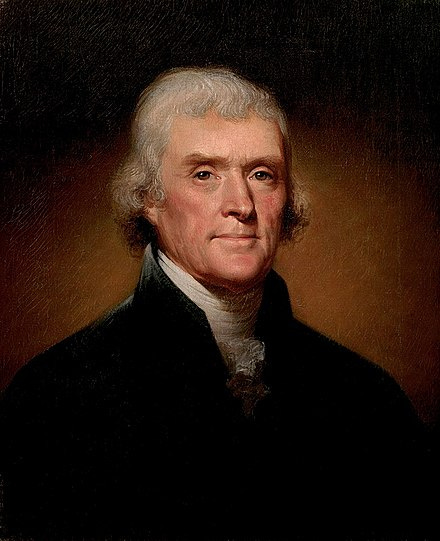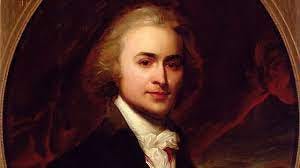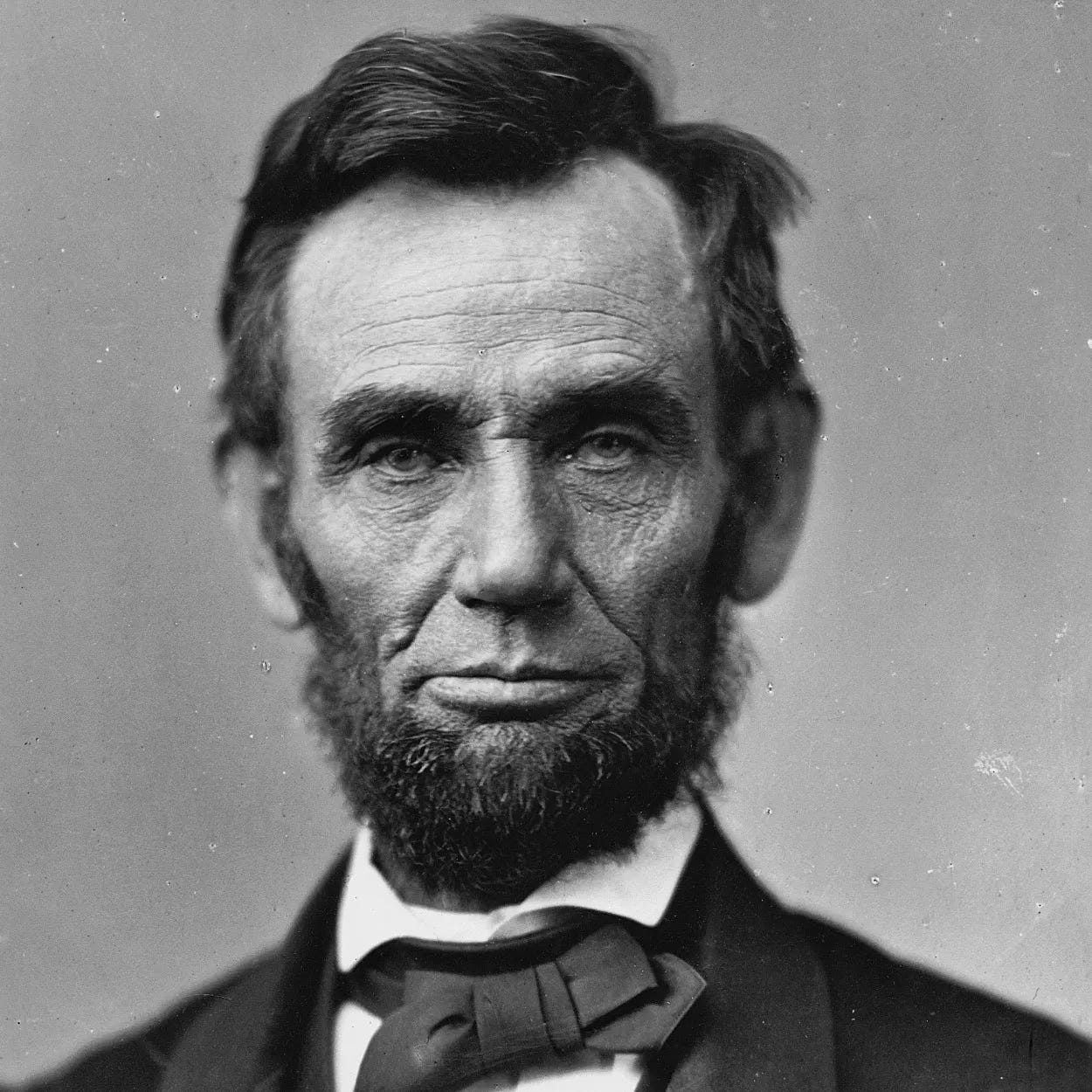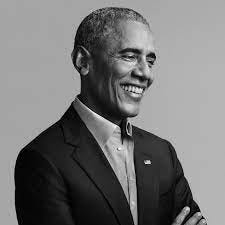Presidential Thinks - A Holiday Special (Mini-think #5)
Jefferson, Quincy Adams, Lincoln, and Obama
Presidents’ Day was, originally, a federal holiday to honor Father George.
But, the thing is, I know embarrassingly little about our first president—something I intend to cure in 2024.1
As a consolation, I do have for you some Presidential Thinks, which, due to my feelings of inadequacy re: Washington, I regret to inform you, have become bulkier than your average Think. Good thing it’s a long weekend.
Here’s what we got:
Thomas Jefferson (#3) on his second favorite place in the world
John Quincy Adams (#6) on how to refocus your life in line with your ambitions
Abraham Lincoln (#16) on how to be persuasive2
Barack Obama (#44) on why it had to be him.
Now, in the words of Memphis Raines….Ok, let’s ride.3
(1) Thomas Jefferson on his second favorite place in the world
At the age of 33, Thomas Jefferson was selected to be the primary author of the Declaration of Independence. Two dozen years later, in 1800, Jefferson—then 57—beat out John Adams to become the 3rd President of the US.
In between the Revolution and his presidency, Jefferson was a career politician: Governor of Virginia, a state and US congressional legislator, and the Minister of France, taking up Ben Franklin’s old post in 1785, and moving to Paris.4
But just before he left in 1789 (as the French Revolution was heating up), he became nostalgic reflecting on his newfound deuxième patrie5:
And here I cannot leave this great and good country without expressing my sense of its preeminence of character among the nations of the earth.
A more benevolent people I have never known, nor greater warmth and devotedness in their select friendships. Their kindness and accommodation to strangers is unparalleled, and the hospitality of Paris is beyond anything I had conceived to be practicable in a large city. Their eminence, too, in science, the communicative dispositions of their scientific men, the politeness of the general manners, the ease and vivacity of their conversation give a charm to their society to be found nowhere else.
In a comparison of this with other countries, we have the proof of primacy which was given to Themistocles after the battle of Salamis. Every general voted to himself the first reward of valor, and the second to Themistocles.
So ask the traveled inhabitant of any nation, In what country on earth would you rather live? — Certainly, in my own where are all my friends, my relations, and the earliest and sweetest affections and recollections of my life.
Which would be your second choice? France.
The OGT: This hit home with me given my own romanticism about France, which I’ve written about elsewhere. It was also eye opening, given that Jefferson was of English descent, and, as you might expect, had reservations about the French given their recent history. It goes to show what proximity and living amongst a people can do to anyone’s, likely uninformed, view of that people from afar.
(2) John Quincy Adams
Three years later in May 1792, and a couple months before his twenty-fifth birthday, John Quincy Adams—son of second president, John Adams— felt lost.
Though he’d graduated second in his class at Harvard, had learned several languages, and started a legal practice, he felt he was severely undershooting both the station he was granted in life, and, more agonizingly, his ambitions.
In his diaries, Vol 1, 1779-1821, he wrote one of the most human and, for me, relatable passages ever written by a mid-20-something:
I am not satisfied with the manner in which I employ my time. It is calculated to keep me forever fixed in that state of useless and disgraceful insignificancy which has been my lot for some years past. At an age bearing close upon 25, when many of the characters who were born for the benefit of their fellow creatures have rendered themselves conspicuous among their contemporaries, and founded a reputation upon which their memory remains and will continue to the latest posterity, at that period I still find myself as obscure, as unknown to the world as the most indolent, or the most stupid of human beings. In the walks of active life, I have done nothing.
JQA went on to, as objectively as possible, to diagnose what has happened:
My heart is not conscious of an unworthy ambition; nor of a desire to establish either fame honor or fortune upon any other foundation than desert. But it is conscious..that the ambition is constant, and unceasing, while the exertions to acquire the talents which ought alone to secure the reward of ambition are feeble, indolent, frequently interrupted, and never pursued with an ardor equivalent to its purposes.
After accountability, he then moves to galvanize action. He starts by laying down some tenants for change:
First then, I begin with establishing as a fundamental principle upon which all my subsequent pursuits and regulations are to be established, that the acquisition, at least with respectable reputation, is (subject to the overruling power of providence) within my own powers. And that on my part, nothing is wanting but a constant, and persevering determination to tread in the steps which naturally lead to honor;
And at the same time, I am equally convinced, that I never shall attain that credit in the world, which my Nature directs me to wish, without such a steady, patient and persevering pursuit of the means adapted to the end I have in view, as have often been the subject of my speculation, but never of my practice.
Then he misquotes, or changes the quote6—I can't tell which— of Robert Lowth7 poem called The Choice of Hercules: “Labor and Toil stand stern before the throne; And guard, so Jove commands, the sacred place.”
His last manner of business: where will he aim this newfound focus?
In a passage that reminds me of Michelle Obama, whom two centuries years later would ask herself: “What kind of person do I want to be? How do I want to contribute to the world?” he writes:
And as I have grounded myself upon the principle, that my character is to be the work of my own hands, it becomes necessary for me to determine upon what part of active or speculative life, I mean to rest my pretentions to eminence.
He considers several— public life, military, “litterary performance”— but declines all because of his disposition, or because of the impact they’d have on his “profession”—which was law.
I have therefore concluded, that the most proper object of my present attention, is that profession itself.
With that, he focused on becoming the best lawyer he possibly could, and completely turned around his fledgeling practice. 32 years later, at the age of 57, Adams, by then a successful lawyer and diplomat, was elected the 6th President of the United States.
The OGT: I know of no more inspiring example of self-awareness, accountability, and action. I read this, and several other of JQA’s entries on an annual basis.
“I never shall attain that credit in the world, which my Nature directs me to wish, without such a steady, patient and persevering pursuit of the means adapted to the end I have in view, as have often been the subject of my speculation, but never of my practice.”
(3) Abraham Lincoln on how to be persuasive
Fast-forward fifty years to February 22, 1842.
Abraham Lincoln—then 33, nine months before marrying Mary Todd — spoke in Springfield, Illinois at the Washingtonian Temperance Society on the 110th anniversary of Washington’s birth.8
At that point, Lincoln had served two years in the Illinois House of Representatives, and then, after teaching himself law from borrowed textbooks, had opened a legal practice.
The attendees were a mix: many of the church and many who suffered from alcohol abuse. Rather than berate them, or take a hard line, Lincoln used, and suggested, an approach that was refreshing and appealing:
When the conduct of men is designed to be influenced, persuasion— kind, unassuming persuasion—should ever be adopted. It is an old and a true maxim "that a drop of honey catches more flies than a gallon of gall." So with men.
If you would win a man to your cause, first convince him that you are his sincere friend. Therein is a drop of honey that catches his heart, which, say what you will, is the great high-road to his reason, and which, when once gained, you will find but little trouble in convincing his judgment of the justice of your cause, if indeed that cause really be a just one.
If you want to have little influence over a person’s actions, on the other hand, Lincoln recommended the opposite approach:
On the contrary, assume to dictate to his judgment, or to command his action, or to mark him as one to be shunned and despised, and he will retreat within himself, close all the avenues to his head and his heart; and though your cause be naked truth itself, transformed to the heaviest lance, harder than steel, and sharper than steel can be made, and though you throw it with more than herculean force and precision, you shall be no more able to pierce him than to penetrate the hard shell of a tortoise with a rye straw. Such is man, and so must he be understood by those who would lead him, even to his own best interests....
The OGT: I’m always struck at the great writing of such young, but soon to be great, people, especially Lincoln, who was poor and completely self-educated. And then I remember, two things.
First, they were all eager readers and writers from young ages, and as such, one can only expect to get there by putting in similar hours of practice. Second, Emerson’s quote, that “Cicero, Locke, and Bacon were only young men in libraries when they wrote these books.”
(4) Barack Obama on why it had to be him
More than a century and a half later, Just weeks away from his decision to run for Presidency, Barack Obama sat in a room with his closest family and political confidants—Michelle and David Axelrod among them— to make a final call on whether or not he could actually pull this thing off.
And, more to Michelle’s way of thinking, even if he could, if he should.
Michelle, who had been uncomfortable with Barack’s bid for the US Senate—due to the strain to family life once under the political microscope — asked him point blank: why did it have to be him?
This was Michelle according to Barack’s telling in his memoir, A Promised Land:
“You’ve said there are a lot of other Democrats who are capable of winning an election and being president. You’ve told me the only reason for you to run is if you could provide something that the others can’t. Otherwise it’s not worth it. Right?” I nodded.
“So my question is why you, Barack? Why do you need to be president?”
Barack’s answer inspired:
“Who knows?” I said, looking around the table. “There’s no guarantee we can pull it off.
Here’s one thing I know for sure, though. I know that the day I raise my right hand and take the oath to be president of the United States, the world will start looking at America differently. I know that kids all around this country—Black kids, Hispanic kids, kids who don’t fit in—they’ll see themselves differently, too, their horizons lifted, their possibilities expanded. And that alone…that would be worth it.’
The room was quiet. Marty smiled. Valerie was tearing up. I could see different members of the team conjuring it in their minds, the swearing in of the first African American president of the United States. Michelle stared at me for what felt like an eternity. “Well, honey,” she said finally, “that was a pretty good answer.”
Barack continued to reflect.
In answering Michelle’s question, I was anticipating the ways in which I hoped that even a credible campaign might shake loose some vestiges of America’s racial past. But privately I knew that getting there also meant something more personal.
If we won, I thought, it would mean that my U.S. Senate campaign hadn’t just been dumb luck. If we won, it would mean that what had led me into politics wasn’t just a pipe dream, that the America I believed in was possible, that the democracy I believed in was within reach. If we won, it would mean that I wasn’t alone in believing that the world didn’t have to be a cold, unforgiving place, where the strong preyed on the weak and we inevitably fell back into clans and tribes, lashing out against the unknown and huddling against the darkness. If these beliefs were made manifest, then my own life made sense, and I could then pass on that promise, that version of the world, to my children.
I had made a bet a long time ago, and this was the point of reckoning. I was about to step over some invisible line, one that would inexorably change my life, in ways I couldn’t yet imagine and in ways I might not like. But to stop now, to turn back now, to lose my nerve now—that was unacceptable. I had to see how this whole thing played out.
The OGT: It’s encouraging to see that even Obama questions himself. And that, at least before the presidency, his vigorous optimism won over his closest of kin.
For starters, I am watching this History documentary on him called Washington, which I am liking.
Honest Abe’s bday, btw, is February 12th, and, he apparently, at some point in the last two centuries, wedged his way into this holiday.
If you’re not a Nic Cage fan: kindly, leave.
Apparently, when he arrived in France, a politician said to him, "You replace Monsieur Franklin, I hear.” And Jefferson replied, "I succeed. No man can replace him."
Second homeland
Actual quote: Danger and toil stand stern before her throne; And guard (so Jove commands)the sacred place.
Lowth, I came to learn, was the Oxford Professor of Poetry, was good friends with Scottish Philosopher, David Hume, and was an influential grammarian. His most worthy contribution being an emphasis on the rule to not allow a sentence to end in a preposition, such as “What are you asking for?”
And thus completes my GW contribution on this weekend of remembrance.







